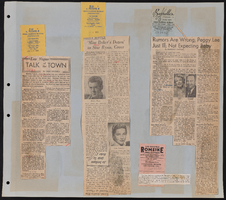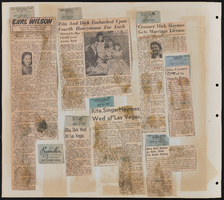Search the Special Collections and Archives Portal
Search Results

Transcript of interview with Fred B. Houghton by Philip Partridge, February 9, 1975
Date
1975-02-09
Archival Collection
Description
On February 9, 1975, Philip Partridge interviewed former attorney, Fred B. Houghton (born August 27th, 1894 in Chicago, Illinois) in his home in Las Vegas, Nevada. The two discuss how Houghton first moved to Las Vegas and how he came to practice law. The interview concludes with Houghton’s thoughts of Southern Nevada.
Text
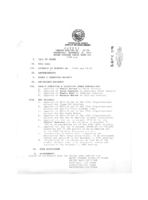
Meeting minutes for Consolidated Student Senate University of Nevada, Las Vegas, November 18, 1992
Date
1992-11-18
Archival Collection
Description
Includes meeting agenda and minutes along with additional information about the memorandum. CSUN Session 23 Meeting Minutes and Agendas.
Text
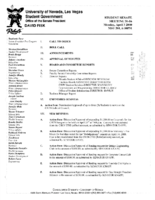
Meeting minutes for Consolidated Student Senate, University of Nevada, Las Vegas, April 03, 2000
Date
2000-04-03
Archival Collection
Description
Includes meeting minutes and agenda. CSUN Session 30 (Part 1) Meeting Minutes and Agendas.
Text
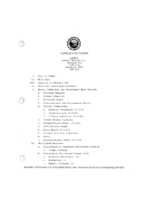
Meeting minutes for Consolidated Student Senate, University of Nevada, Las Vegas, March 08, 1983
Date
1983-03-08
Archival Collection
Description
Includes meeting agenda and minutes along with additional information about the election posting policy and work election agreement. CSUN Session 13 (Part 1) Meeting Minutes and Agendas.
Text

Meeting minutes for Consolidated Student Senate, University of Nevada, Las Vegas, March 19, 2001
Date
2001-03-19
Archival Collection
Description
Includes meeting minutes and agenda, along with additional information about bylaws.
Text
Pagination
Refine my results
Content Type
Creator or Contributor
Subject
Archival Collection
Digital Project
Resource Type
Year
Material Type
Place
Language
Records Classification


